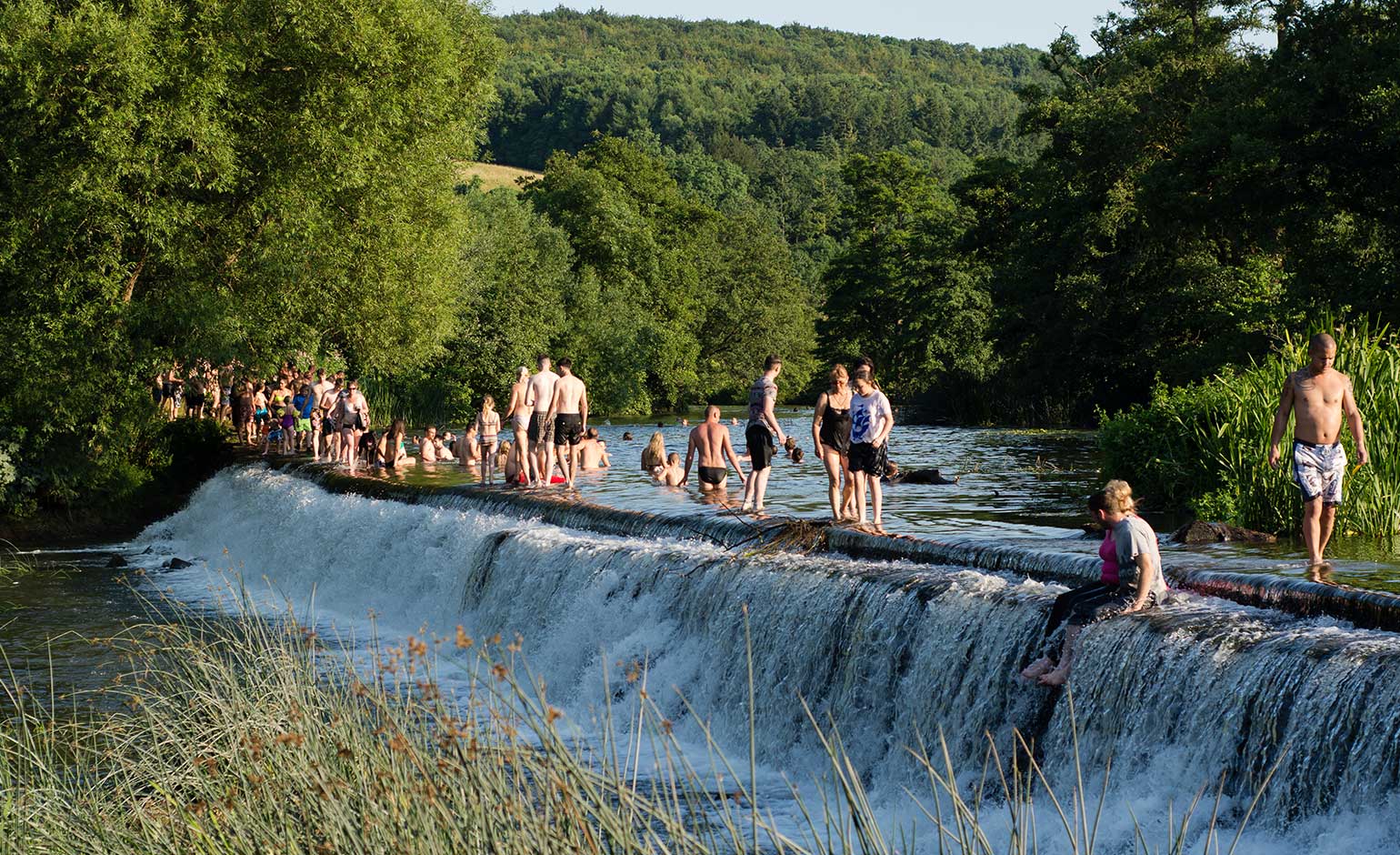Wessex Water has issued a reminder about the health risks associated with open water swimming following reports of people falling ill after taking to the water at Warleigh Weir.

Warleigh Weir near Bath | Photo © IanRedding / Shutterstock.com
Last month, landowner Johnny Palmer said a number of people had reported becoming ill after swimming in the water at Warleigh Weir near Bath, including his own children.
The local businessman took to social media to say the instances of illness “correlated with Wessex Water’s pumping of raw sewage into the river upstream days before”.
Since April, Wessex Water has been carrying out a bathing water investigation at Warleigh, supported by the Rivers Trust, Environment Agency and Mr Palmer. Sensors provide real-time data from storm overflow sites upstream of the weir.
Bath resident and Senior Clinical Lecturer Dr Bharat Pankhania and Wessex Water say there are health risks to consider when open water swimming.
Dr Pankhania, of Exeter University, said: “Swimming in open rivers should be undertaken with much caution. There are many hazards under the water and rapid changes in depth and currents.
“Caution is also required after heavy rainfall and following dry periods. The advice is always to be aware of the hazards.
“It is well known that people can pick up infections if they ingest river, lake or sea water whilst swimming. Rivers can have high viral and bacterial loads due to run-off from agricultural land as well as regulated storm overflows and treated sewage discharges.
“It is not as simple as just saying the cause is one particular source in such complex environments.”
Data from Wessex Water for Saturday 24th July has shown there were discharges from two overflows near Warleigh Weir; Monkton Combe (3.5km upstream) for 18 minutes from 6.08am and Culver Street, Bradford on Avon (8.5km upstream) for 16 minutes from 10.05pm.
The sewage company says there were no discharges on Sunday 25th July, and with the river flow rate more than doubling between 23rd and 25th July in response to the intense rainfall, the overflows would have had “no impact” on Warleigh during daylight hours that weekend, when people reported becoming ill.
However, run-off from the wider catchment would have affected water quality. River water quality is affected by numerous factors including agriculture, urban run-off, treated effluent from public and private sewage works, storm overflows, misconnected drains and wildlife.
Wessex Water said there is a lot of confusion about how and why storm overflows operate.
They act as a relief valve to protect properties from flooding when the combined sewerage system, which carries foul water and surface water, becomes overwhelmed.
When storm overflows are in use, Wessex Water notifies Surfers Against Sewage and other organisations. The information is also published on Wessex Water’s website.
The Environment Agency is sent information about when and for how long storm overflows are in use and also takes water quality samples to monitor bathing water quality.
Ruth Barden, Wessex Water’s Director of Environmental Solutions, said: “In an ideal world we wouldn’t have storm overflows at all, but separating out surface water will require enormous investment and disruption as pipework was laid under streets, homes and businesses many years ago.
“We also need a change in legislation to enable separation and local disposal of surface water straight back into the environment.”
Ruth added: “Right now people need more information before deciding whether to swim, so we are working with stakeholders to develop a real-time water quality notification system so recreational users can enjoy the river with confidence.”
Government advice on swimming in rivers such as the Avon at Warleigh can be found here.



